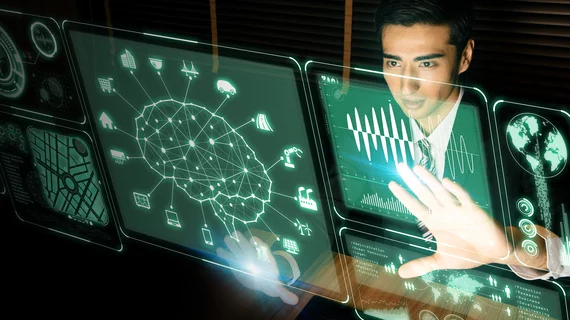FDA signs off on AI algorithms for detecting COVID-19 in incidental CT findings
The FDA has permitted the use of Aidoc’s AI models for the detection and prioritization of incidental CT findings associated with COVID-19.
Any CT scans of a patient’s lung—or even just part of the lung—may show signs of infection, and these algorithms can help triage patients immediately when necessary.
“In our experience, it is not unusual for the radiologist to be the first to diagnose COVID-19 disease in patients especially when the disease is clinically unsuspected,” Paul Chang, MD, vice chair of radiology informatics at University of Chicago Medicine, said in a statement. “The outbreak of the COVID-19 pandemic may occur in waves and should these waves occur, it will become increasingly important to identify imaging findings suggestive of COVID-19 in a variety of clinical settings. Aidoc’s ability to detect and triage patients with incidental findings associated with COVID-19 acts as another layer of protection as the disease may continue to circulate in the months to come.”
Previous coverage of Aidoc gaining FDA approval for its AI solutions is available here and here.

